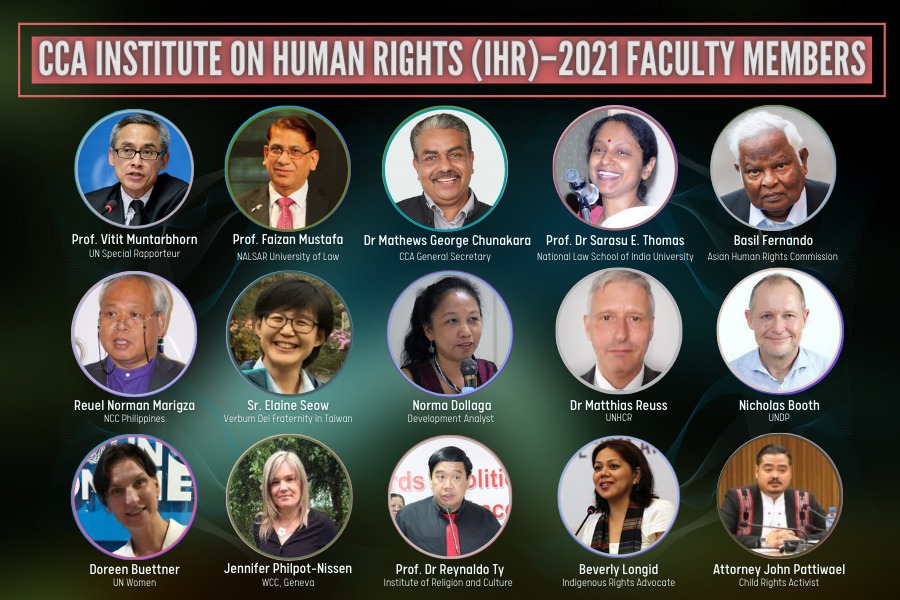Intensive two-week course, Institute on Human Rights (IHR), will commence shortly
 CHIANG MAI: The Christian Conference of Asia (CCA)’s new initiative, the Institute on Human Rights (IHR), an intensive two-week course, will commence on Monday, 17 May 2021.
CHIANG MAI: The Christian Conference of Asia (CCA)’s new initiative, the Institute on Human Rights (IHR), an intensive two-week course, will commence on Monday, 17 May 2021.
Under the theme ‘Being Defenders of Human Rights and Human Dignity’, the training course is designed to cover a wide range of human rights topics including the principles of human rights and human dignity from Christian theological perspectives, as well as international human rights instruments and protection mechanisms.
Emphasising the importance of IHR–2021, Dr Mathews George Chunakara, the General Secretary of the CCA stated, “In a world that is rife with gross human rights violations and is marred by a divisive and discriminatory socio-political climate, we are called to combat this epidemic of human rights violations and reiterate our commitment to uphold the values of human dignity while establishing a culture of human rights.”
The CCA General Secretary added that the Institute on Human Rights is a unique opportunity facilitated by CCA for young people, especially pastors and church workers, to be empowered and equipped with the knowledge and skills required to be defenders of human rights in their communities.
Twenty-nine students selected from across Asia and beyond will attend the IHR–2021.
The IHR–2021 will be facilitated by fifteen resource persons comprising internationally acclaimed human rights educators, human rights defenders, social scientists, and legal luminaries who have specialised in international human rights laws, human rights protection mechanisms, and international human rights advocacy.
Prominent members of faculty include Prof. Vitit Muntarbhorn (UN Special Rapporteur on Human Rights and Professor Emeritus, Faculty of Law, Chulalongkorn University in Bangkok); Prof. Faizan Mustafa (Vice-Chancellor, NALSAR University of Law, Hyderabad, India); Basil Fernando (former UN human rights education trainer in Cambodia, and Director of Asian Human Rights Commission, Hong Kong), Prof. Dr Sarasu Esther Thomas (Registrar, National Law School of India University, Bangalore, India); Bishop Reuel Norman Marigza (Theological educator and General Secretary, National Council of Churches in the Philippines); Sr. Elaine Seow (Verbum Dei Missionary Fraternity of the Roman Catholic Church in Taiwan); Norma Dollaga (Kasimbayan Ecumenical Centre for Development, Philippines); Dr Matthias Reuss (UNHCR, Bangkok Regional Office); Nicholas Booth (UNDP, Asia Regional Office ,Bangkok); Doreen Buettner (UN Women, Asia Pacific Regional Office); Jennifer Philpot-Nissen (Commission of the Churches on International Affairs, World Council of Churches in Switzerland); Prof. Dr Reynaldo Racaza Ty (Professor of Political Science); Beverly Longid (International Indigenous Peoples Movement for Self Determination and Liberation, Philippines); Attorney John Pattiwael (Child Rights Activist); and Dr Mathews George Chunakara (CCA).
The sessions of the IHR–2021 will conclude on 28 May 2021.










